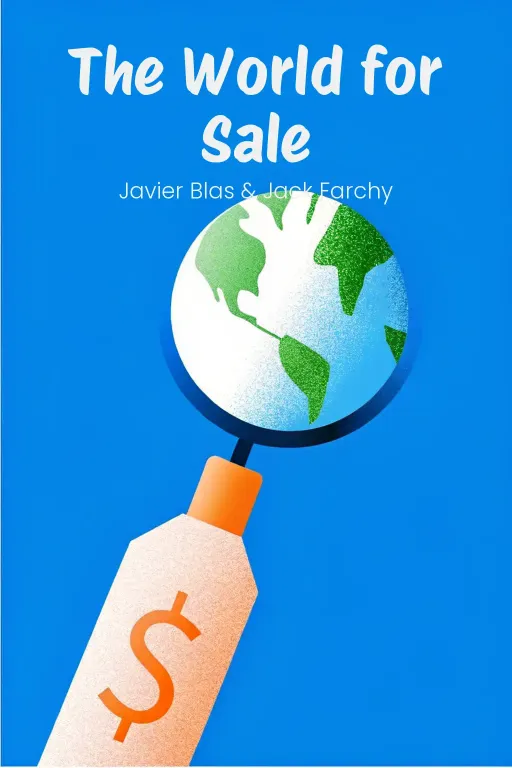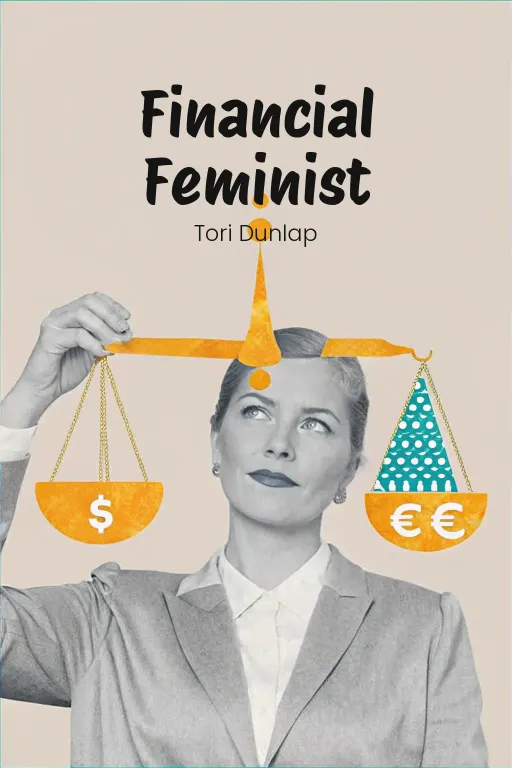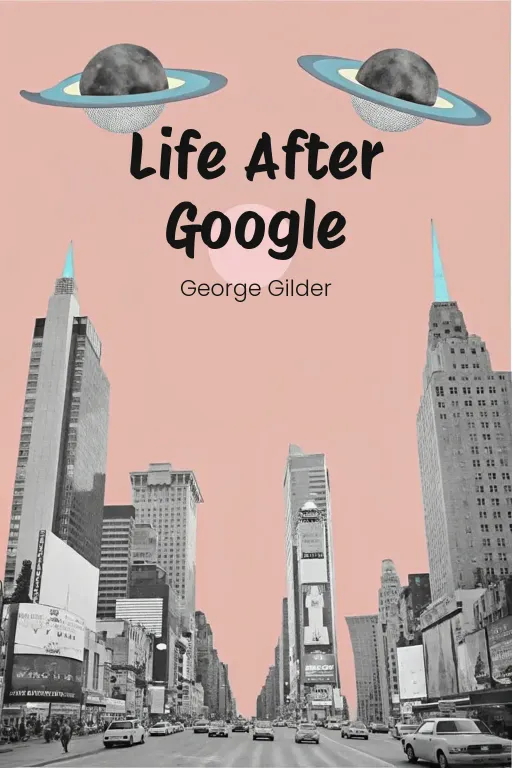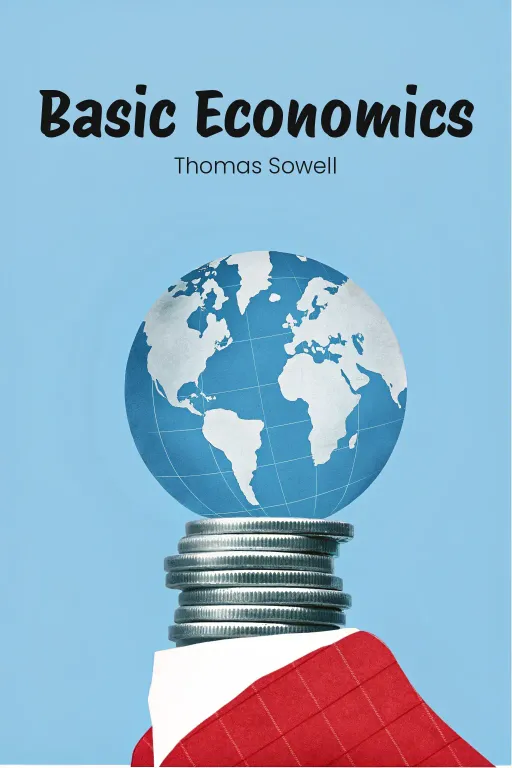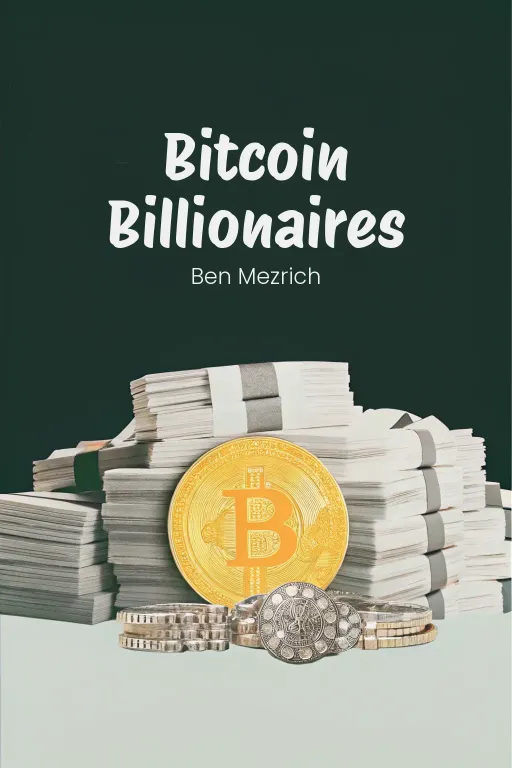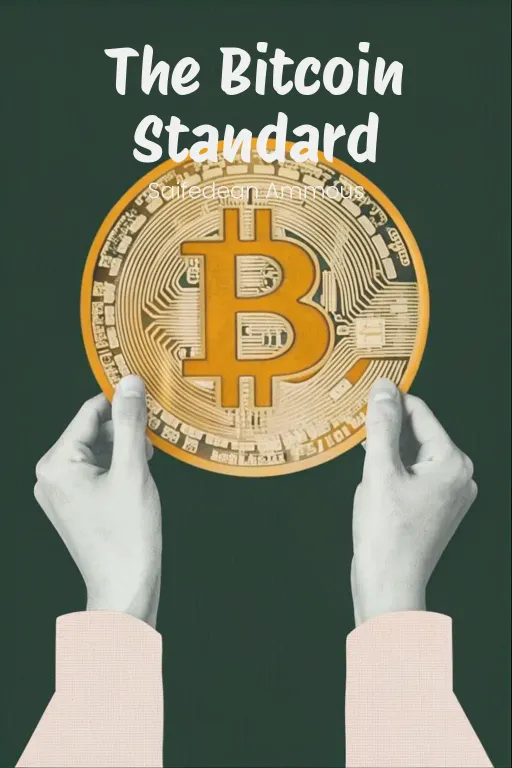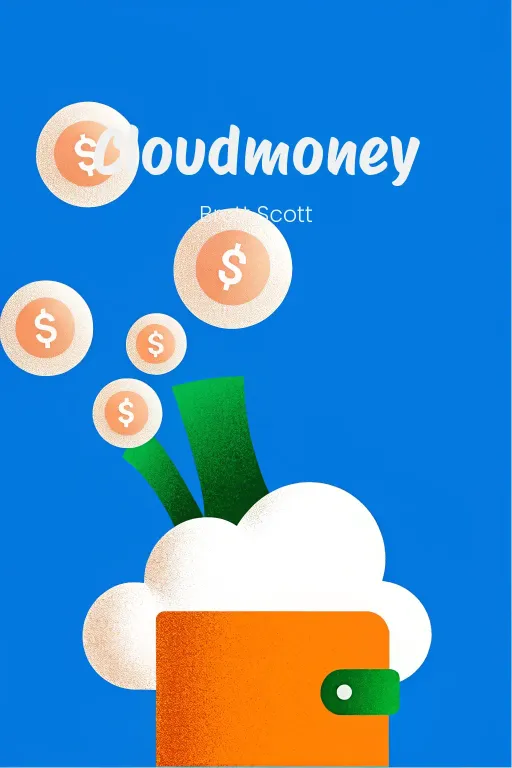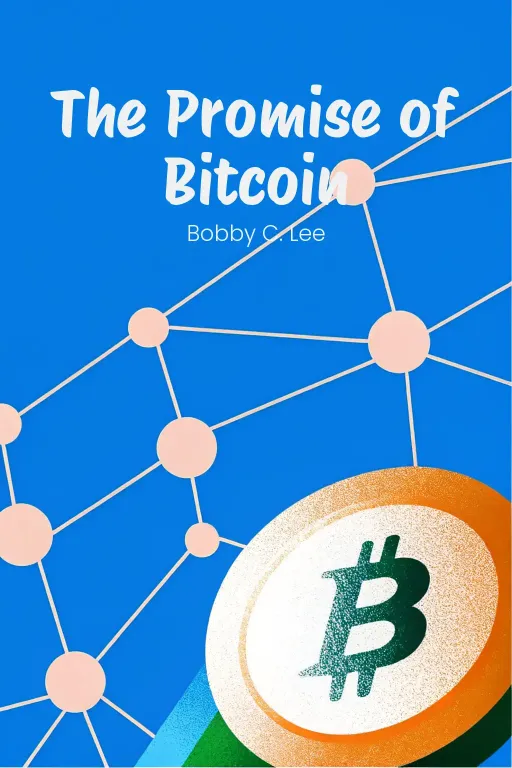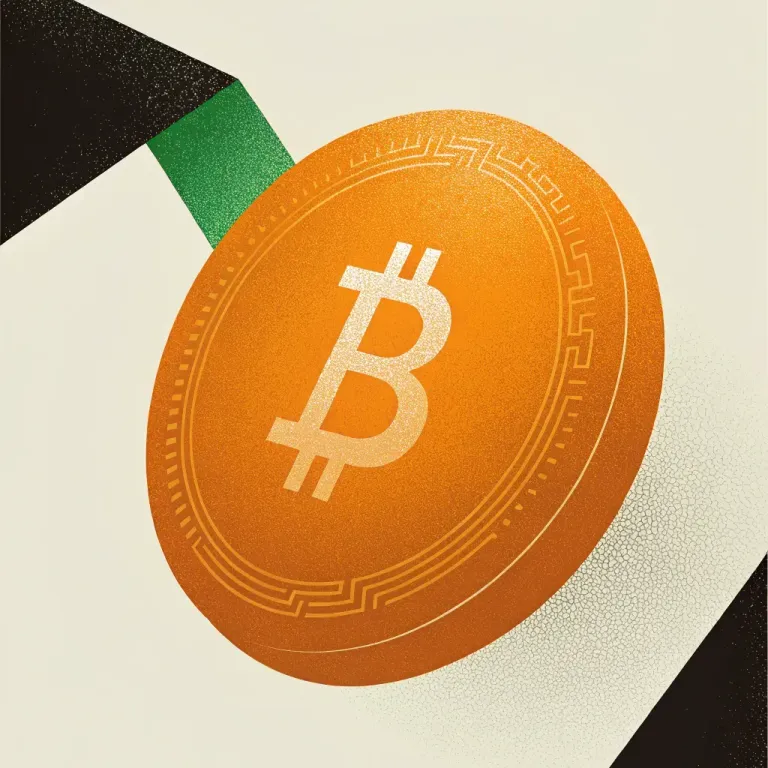
Bitcoin: Remake Money?
Podcast by Let's Talk Money with Sophia and Daniel
The Decentralized Alternative to Central Banking
Introduction
Part 1
Daniel: Hey everyone, welcome back! Today we're tackling something super relevant to all of us: money. What it is, where it's been, and, you know, where it might be going. Sophia: Money, right? We spend our lives chasing it, but how often do we actually stop to think about what it is? Daniel, I mean, have you ever really looked at a dollar bill and wondered, "Why does this even work?" Or even better, "Why are people saying Bitcoin does it better?" Daniel: Exactly! And that’s precisely the kind of stuff Saifedean Ammous digs into in his book, The Bitcoin Standard. It's not just about Bitcoin, mind you. It's a deep dive into the entire history of money! From bartering, to gold coins, to fiat currencies, and then, boom, Bitcoin enters the scene. Sophia: So, a whirlwind tour of economic history with a digital twist? Color me interested. But genuinely, what makes Bitcoin supposedly so revolutionary? Daniel: Well, Ammous makes the case that Bitcoin brings together decentralization, scarcity, and immutability in a way that creates the most robust form of money we've ever had. And along the way, he really critiques fiat currencies, highlighting their shortcomings and how central banking can make things even worse. Sophia: Okay, I can already hear the critics sharpening their knives, saying, "Bitcoin sounds amazing on paper, but does it actually work in the real world?" Daniel: Fair point, Sophia, but hold on to that skepticism, because we're going to break it all down today. First, we’ll walk through the evolution of money, from bartering all the way to modern paper money. Then, we'll get into the core principles of what makes a currency "sound." And finally, we'll explore how Bitcoin could potentially bring financial freedom on a global scale. Sophia: So barter system, “sound money,” and Bitcoin as a financial revolution. Right, I'm on board. But I have a feeling there will be a few surprises along the way? Daniel: Oh, absolutely. Stick around, and you might just see why Bitcoin isn’t just an upgrade to money, but maybe a complete rethinking of what money even means. Sophia: Okay, "rethinking money" - that's a big claim, Daniel. Let's unpack that.
Historical Evolution of Money
Part 2
Daniel: Okay, let’s kick things off with the very basics – barter systems. Way back when, before anyone had even dreamed of modern money, people bartered. Sounds simple, right? Farmer trades grain for blacksmith’s tools. But, it was seriously inefficient. Sophia: Ah, you mean the old “coincidence of wants” problem? The farmer needs tools, sure, but if the blacksmith is all stocked up on grain, the whole thing grinds to a halt. It's like… a dating app where nobody swipes right – a total dead end. Daniel: Exactly! Barter needed this double coincidence, which “really” limited what you could do. Trade just couldn’t grow, and as society got more complex, the system just wasn’t going to work anymore. Sophia: So, then we get commodity money. People start using stuff like salt, seashells, or even livestock as money. Seashells, I kind of get – portable. But livestock? Seriously, were people buying groceries with a goat? Daniel: Well, livestock did have some advantages. It had inherent value, you know, it could reproduce, and it was important in farming societies. But you’re right. Lugging around a cow for your daily coffee run wasn't practical. So, naturally, people start looking for better options. Sophia: Which brings us to my absolute favorite – the Rai stones of Yap Island. I mean, Daniel, come on, giant stone discs as money? Has to be one of history's most bizarre ideas. Daniel: It sounds crazy at first, but it’s actually pretty brilliant. These stones – some weighed tons – weren't physically moved. The ownership, it was all recorded publicly… almost like a ledger. In a weird way, it’s an early version of how Bitcoin works, you know? Trust and consensus, without the actual moving of things. Sophia: Right, until Captain David O’Keefe shows up with modern tools and ruins everything. Suddenly, they could make the stones way easier, and inflation hits the system like… well, like a giant limestone slab. Daniel: Exactly! And that's the key takeaway here. Good money needs to be scarce. When O’Keefe flooded the market with these stones, the old ones lost value, proving that you lose trust in money when you lose scarcity. Sophia: So, durability, portability, and scarcity are shaping up as must-haves for solid money. So that brings us to precious metals, right? I mean, gold? That just screams “money material.” Daniel: Spot on, Sophia. Gold and silver, to some extent, were game changers because they checked so many boxes. Durable, divisible, universally valued. And its scarcity, because it’s hard to mine, that gave it a high “stock-to-flow” ratio. That just means there’s a lot of gold already around compared to how much new gold is mined each year. Sophia: But even gold had its problems, didn’t it? Look at the Roman Empire. They started debasing their coins – skimping on the actual gold to make more coins and pay for wars. Daniel: Right, and it was a disaster. The more they debased, the less people trusted it. Inflation went crazy, trust disappeared, and the economy tanked. The lesson there? When money loses integrity – through debasement, inflation, or just too much of it – it destabilizes society. Sophia: It’s amazing, and a little scary, how much economic history boils down to trust. Which handily brings us to paper money. Sounds good on paper, but with fiat currency, you’re basically saying, "Trust me, this piece of paper has value”. Daniel: Exactly. Fiat money isn’t backed by anything tangible. It’s valuable because governments say it is. That gives you flexibility, sure, but it also creates opportunities for abuse, like hyperinflation. Sophia: Ah, Weimar Germany. The poster child for why printing money willy-nilly is a terrible idea. When people are hauling wheelbarrows of cash just to buy a loaf of bread, Daniel, you know something is seriously wrong. Daniel: It’s a horrible, but important example. In the 1920s, Germany printed tons of money to pay off World War I debts, and the Mark crashed. People lost everything overnight, poverty went through the roof, and well, things got very bad. Sophia: And it’s not just ancient history – modern cases like Venezuela show us that hyperinflation is still a threat. Again, government mismanagement of fiat currency leads to disaster. Daniel: Absolutely. These examples, past and present, highlight the importance of stability, scarcity, and trust in a money system. Without those, money just can't do its job as a store of value or a way to make trades. Sophia: Which sort of brings us full circle, I guess. If trust is the key to money, then Bitcoin’s decentralized, scarce, and verifiable nature is starting to sound pretty good, right? Daniel: That’s the idea, Sophia. History shows us that money works when it preserves trust and fails when it’s manipulated. Bitcoin is built around the very ideas that have made money work in the past, but, you know, in a digital and decentralized way. Sophia: Okay, Daniel, I'm listening. But before I jump in on Bitcoin, I need some serious answers to some serious questions about if it's practical, if it's secure, and if anyone will use it. Daniel: We’ll get there! But for now, let’s just appreciate this delicate balance between history and innovation when it comes to money. It “really” sets the stage for how we should think about Bitcoin. Sophia: Alright, alright. So today’s takeaway is this: trust in money is everything. Lose it, and history will come back to bite you. Or eat you raw, if you are a goat in a barter deal.
Characteristics of Sound Money
Part 3
Daniel: So, that historical backdrop really helps us see the weaknesses of fiat money and why we need something more solid like Bitcoin. That brings us to sound money itself—what it is, why it's important, and how its principles, you know, like scarcity, durability, dictate how assets, like gold or Bitcoin, should perform. Sophia: Okay, so we're diving into what makes a currency actually reliable and, dare I say, trustworthy. So Daniel, what are the core elements of sound money? Daniel: Well, the principles are timeless, really. I usually sum it up with the three key attributes: scarcity, durability, and divisibility—the “holy trinity” of currency, as I like to call it. Let's start with scarcity because it's probably the most important. Sophia: You mean that "I'm rare, so I'm valuable" idea, right? Like gold became respected because it wasn't just lying around everywhere. Daniel: Exactly! Scarcity is what separates good money from, well, junk. Gold has historically been the perfect example because it's rare, right? It has a high stock-to-flow ratio. That's just a fancy way of saying there's way more gold already out there than what we mine each year. That keeps its value pretty steady over time. Sophia: But, gold isn't the only scarce thing. Lots of things are rare but not used as money. Rare baseball cards are scarce, but you can't buy groceries with a 1952 Mickey Mantle. Daniel: That's a good point, but scarcity on its own isn't enough. To work as money, something also needs demand and stability. Gold has naturally had those qualities all along. Now, Bitcoin has scarcity built right into its code. Sophia: Ah, yes, Bitcoin's 21 million coin limit. That's like a digital “keep out’ sign to prevent any digital gold rushes. Daniel: Precisely. Bitcoin achieves scarcity by design. Its supply is limited, unlike fiat currencies where governments can just print more. Every four years, Bitcoin has a "halving," where the number of new coins given to miners is cut in half. This makes each Bitcoin more and more rare over time, in a predictable, transparent way. Sophia: And that transparency is crucial. Governments don't exactly announce when they're messing with their currency. Daniel: Exactly. And it’s this transparency that makes people trust Bitcoin's scarcity. Think about Weimar Germany. In the 1920s, the government printed money to pay war debts, flooding the market. The result? Hyperinflation, crazy high, so that people burned cash for heat because it was cheaper than coal! Sophia: And that’s where Bitcoin is different, right? Governments can't just print more Bitcoin because they feel like it, or have wars to pay for. Daniel: Exactly. Bitcoin's scarcity can't be manipulated. Historically, that's been the weakness of fiat systems, and even some currencies backed by commodities. Sophia: Okay, scarcity? Check. What's next? Durability! The idea that your money shouldn't just disappear or lose value over time. Daniel: Durability is crucial. Gold is great because it doesn’t corrode or degrade. Ancient gold coins dug up today can look as good as when they were made. It's why gold has been a reliable store of value for so long. Sophia: And Bitcoin takes durability to a whole new level, right? It's digital, so it doesn't "rust" or wear out. Daniel: Exactly. Bitcoin's durability is more about its technology. Every Bitcoin transaction is permanently recorded on a distributed ledger called blockchain, across thousands of computers worldwide. This makes it super resilient, even against attacks or bans. Sophia: So, you're saying no one, not even a government, can mess with that ledger? Daniel: Right. Over the years, countries like China have tried to heavily regulate or ban Bitcoin mining. Yet, Bitcoin has adapted, with mining moving elsewhere and the network bouncing back. It's designed to be resilient. Sophia: Resilience is good, but money needs to be practical. Convince me that it's easy to spend Bitcoin in small amounts, or that I won't need an armored truck to move it around. Daniel: And that’s where divisibility and portability come in. Historically, gold was hard to divide easily. Sure, you could melt it, but that's not practical for buying coffee. Bitcoin fixes this. You can divide one Bitcoin into 100 million smaller units, called satoshis. That makes it easy to pay for anything from a coffee to a house. Sophia: And portability? Again, gold makes you work out if you're moving more than a few ounces. Daniel: True. Moving gold is hard and risky. Bitcoin can be transferred instantly across borders, with low fees and no third party needed. It's the ultimate portable currency, helping people, especially where traditional banking is bad. Sophia: Okay, I see it: Bitcoin checks all the boxes. It’s scarce, durable, divisible, and portable. Sounds like its nerdy engineers wanted to win a “Best Money Ever” award. Daniel: Well, they aimed high. Bitcoin uses these principles to be like gold, but better. It's an inflation-resistant, decentralized alternative to fiat. Sophia: Okay, I get the theory, and it's pretty convincing, but what about reality? How does Bitcoin hold up in the real world? Daniel: That's a great question, because that's where Bitcoin really proves its worth, especially for those who don't have good access to traditional systems. But hold on a sec to really think about it: Bitcoin's design builds on thousands of years of monetary history. It's not just sound money; it's money re-engineered for today. Sophia: Okay, point taken. Scarcity, durability, divisibility, and portability - Bitcoin's the Swiss Army knife of money. But good design only gets you so far, Daniel. I still have lots of to learn about how this actually works for people day-to-day - questions we'll need to grill you on next time! Daniel: Absolutely. For now, we have a solid foundation.
Bitcoin as a Revolutionary Monetary System
Part 4
Daniel: So, we've talked about the problems with fiat money and what makes “sound” money, well, sound. Now, let's really dive into Bitcoin and see how it stacks up as a potential solution. We're talking about Bitcoin as a revolutionary monetary system! First, we’ll look at how it works in practice – its decentralized nature, the technology behind it. Then, we’ll zoom out and consider the bigger picture, the economic and societal implications. Ready to jump in? Sophia: Okay, I'm listening. But sell me on this: what makes Bitcoin so special, so revolutionary, that it deserves to disrupt centuries of how we’ve handled money? Daniel: It all boils down to its decentralized, peer-to-peer network. Unlike traditional systems where you have banks, governments, the usual suspects in the middle, Bitcoin runs on a blockchain. Think of it as a distributed ledger, spread across thousands of computers around the world. That means no single entity is in control. Sophia: I get the idea of cutting out the middleman, but this whole blockchain thing… is it just a fancy spreadsheet? Daniel: More like an unhackable digital record book. Every transaction gets bundled into a "block," and these blocks are chained together using some pretty strong cryptography. Once a block is added to the chain, it becomes practically impossible to change. Plus, the network, these "nodes," constantly check and verify these blocks. It's transparent and super secure. Sophia: "Secure" and "digital" in the same sentence always makes me nervous. If huge companies and governments get hacked, what's stopping someone from targeting Bitcoin? Isn’t it just one giant honeypot? Daniel: That's where the decentralization really comes into play. To mess with the blockchain, a hacker would need to control over half the entire network—practically impossible because Bitcoin is so massive and spread out. There's no single point of failure, like a central server. You don't need to trust any specific person; you just trust the protocol itself. Sophia: So, Bitcoin is sticking it to the man and solving trust issues somehow, huh? But let's ditch the theory for a second. Where does this decentralization really shine? Give me a concrete example. Daniel: Think about Venezuela. Years of hyperinflation have wrecked their economy. Their currency, the bolívar, is basically worthless because of government mismanagement. Bitcoin gave people another option. They started using it to try and protect their savings and get around government restrictions on their money. Sophia: Ah, so if your national currency is tanking faster than a rock, Bitcoin must look like a safe harbor, relatively speaking. But let’s be real: isn't Bitcoin still pretty volatile? How does that fit into the idea of "sound money"? Daniel: It's true, it can be volatile. But here's the thing: fiat currencies can collapse completely due to things like inflation and bad government decisions. Bitcoin, on the other hand, is volatile because it's still a relatively new market and people are still figuring it out. As more people use it, the price should stabilize over time. Even now, it's often a more stable option than some national currencies during a crisis. Sophia: Okay, so in Venezuela, Bitcoin wasn't just an investment; it was a lifeline. And the whole decentralized thing helped them sidestep government controls, letting people actually use their money? Daniel: Exactly. People could bypass state restrictions and buy or sell goods and services internationally. Bitcoin also made it easier and cheaper to send money across borders. With traditional services charging big fees and taking forever, Venezuelans could receive money almost instantly and keep the entire amount. Sophia: Alright, decentralization gets a gold star for outsmarting authoritarian regimes and those money-grabbing middlemen. But let's talk about another big promise of Bitcoin: it’s supposed to be immune to inflation. How exactly does Bitcoin guarantee that, Daniel? Daniel: Oh, Bitcoin’s scarcity is really its superpower. It's all baked into the code – a hard limit of 21 million coins. Unlike fiat money, which central banks can print whenever they feel like it, Bitcoin's supply is predictable. Every four years, the rewards for "mining" new Bitcoin get cut in half. This is called "halving" and makes it so new supply gradually decreases until all 21 million are in circulation. Sophia: So, it's like gold, but with an even stricter supply limit. I see the appeal, especially when you compare it to the madness of printing money. Remember when we were talking about how the dollar's value plummeted after Nixon took it off the gold standard? The money supply has just exploded since then. Daniel: Exactly, and the dollar doesn't buy nearly as much as it used to. Bitcoin’s fixed supply creates digital scarcity, making it resistant to inflation in a way traditional currencies just can’t match. That's why it's increasingly seen as a hedge against inflation. Sophia: Here's the thing, though. Having a scarce asset is one thing. Making it practical for everyday life is another. What do you say to people who argue, "Bitcoin might be all high-tech and scarce, but can I actually use it to buy groceries?" Daniel: It's a valid point. So, let's talk about usability, especially for international transactions. Traditional systems involve a lot of middlemen, like banks, which means high fees and slow transfers, especially when you're sending money across borders. Bitcoin does away with that. It enables fast, cheap, and censorship-resistant transactions anywhere in the world. Sophia: Got a good example in mind? Daniel: Nigeria is a great case study. Their central bank has placed tight restrictions on foreign exchange, making it hard for people to send or receive money from abroad. Bitcoin allowed Nigerians to work around these issues, significantly reducing remittance costs, which used to eat up 5% to 10% of every transaction. It’s been revolutionary for those communities that depend on international support. Sophia: That’s not just innovation; that's giving people real power. But here’s a devil's advocate question: what about regulation? Governments don't like things that they can’t control. What if they come down hard with bans, like we saw in China a while back? Daniel: Governments can ban Bitcoin usage within their borders, but they can't ban Bitcoin itself. Its decentralized network is global, and people will find ways to access it, using things like mesh networks or even satellite connections. History proves that bans often encourage innovation, not destroy it. Sophia: Okay, we get the decentralization, we get the inflation resistance… but here’s the big one: could Bitcoin actually go from being sound money to a full-blown global reserve currency? Daniel: That's a massive jump, but not entirely out of the question. Fiat currencies rely on faith in governments, and that faith weakens when there's political instability or runaway inflation. Bitcoin offers a different approach: a neutral, universal standard that can’t be manipulated. It’s definitely a contender for long-term global stability. Sophia: But wouldn’t that require pretty widespread adoption – from regular people to big institutions? Daniel: Absolutely, adoption needs to scale significantly. But we’re already seeing some signs. Countries like El Salvador have adopted Bitcoin as legal tender, companies are adding it to their balance sheets, and people are using it both as a store of value and for everyday purchases. There are challenges, sure, but the trend is clear. Sophia: So, you’re saying Bitcoin could actually replace gold as the world’s primary reserve asset? That’s… a bold statement, to say the least. Daniel: It is ambitious, and it would depend on new developments and expansions, and changes in infrastructures. Yet, Bitcoin combines all the best aspects of sound money—scarcity, durability, divisibility, and portability—with the added benefits of being decentralized and digitally efficient. To many, it represents the future of money. Sophia: Alright, Daniel, you’ve laid out your case: Bitcoin as a sound form of money and potentially a financial revolution. It's a lot to take in, and I’m still trying to wrap my head around one big question: can Bitcoin actually change how we interact with money on a global scale? Daniel: It's a great question, Sophia. Let's dig into that next time. But at least now, hopefully, hopefully, we've made Bitcoin's ingenuity clearer—and why it's become such a hot topic when it comes to the future of money.
Conclusion
Part 5
Daniel: So, Sophia, today we've really taken a deep dive into money, haven't we? From simple bartering all the way to the complexities of Bitcoin. We saw how gold became a standard, the problems with fiat currency, and now this, Bitcoin, which promises something totally new. We also went over what makes money “good” money – scarcity, durability, how easily it can be divided – and how Bitcoin kind of takes those ideas and runs with them into the digital world. Sophia: Yeah, and we looked at it practically, too. I mean, Venezuela, Nigeria—these aren't just academic examples; this is where Bitcoin is literally helping people survive. We talked about how it's decentralized, that hard limit of 21 million coins, and how it’s potentially giving power back to individuals in places where their own governments or economies are failing them. Daniel: Right, exactly. When you look back, history really shows you that trust is everything when it comes to money. And Bitcoin, at its core, is designed to build that trust through being transparent, unchangeable, and not controlled by any single entity. It's more than just a new way to pay for things; it’s rethinking the whole concept of money. Sophia: Okay, but here’s the million-dollar question, or should I say, the 21 million-Bitcoin question: Is Bitcoin really going to change the game forever, or is it just a really interesting but ultimately unstable experiment? Whether you’re a true believer or still on the fence, it’s worth really thinking hard about what the future of money looks like in a world where trust is hard to come by but absolutely essential. Daniel: Absolutely, Sophia. To our listeners, I hope this conversation gets you thinking. What qualities do you think are essential for good money? And could Bitcoin actually be that for our increasingly digital world? Until next time, keep asking questions, keep digging deeper—because money is changing radically whether we're ready for it or not. Sophia: Nailed it, Daniel. Everyone, take care.
